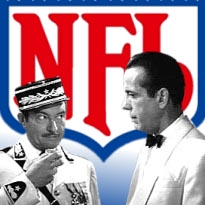 New Jersey has pushed back against the professional and college sports leagues attempting to block its move to bring single-game sports betting to the Garden State. On Friday, the DC-based constitutional attorneys representing New Jersey filed a brief in US District Court in which they argued that the four pro leagues (NFL, NBA, NHL and MLB) and the NCAA lack the constitutional standing necessary to sue the state’s lawmakers because the leagues can’t prove that offering legal bets in New Jersey would significantly boost the staggering sums already wagered on sports in the United States, and thus the leagues can’t prove any harm will be done to them by New Jersey’s action.
New Jersey has pushed back against the professional and college sports leagues attempting to block its move to bring single-game sports betting to the Garden State. On Friday, the DC-based constitutional attorneys representing New Jersey filed a brief in US District Court in which they argued that the four pro leagues (NFL, NBA, NHL and MLB) and the NCAA lack the constitutional standing necessary to sue the state’s lawmakers because the leagues can’t prove that offering legal bets in New Jersey would significantly boost the staggering sums already wagered on sports in the United States, and thus the leagues can’t prove any harm will be done to them by New Jersey’s action.
In Friday’s filing, New Jersey’s attorneys pointed out that some $3b is wagered annually on sports in Nevada, part of the total $380b in annual sports bets they claim are conducted via all manner of sources, including internationally-licensed online gambling sites, office pools and back-of-the-bar bookies. Despite all this money changing hands, the leagues have somehow managed to maintain the “integrity” of their games. So why, then, does the thought of New Jersey adding legal sports betting at Atlantic City casinos and state racetracks pose such an existential threat? The brief forcefully argues that it doesn’t. “In light of the nearly half-trillion-dollar preexisting market in sports gambling, the leagues’ allegation that they will suffer some additional reputational injury from a relatively minuscule increase in legal, tightly regulated sports gambling in New Jersey is simply not credible.”
SHOCKED AND ODD
New Jersey’s attorneys noted that the leagues have experienced tremendous growth over the past two decades, much of it directly attributable to the popularity of sports betting. As reported by the Press of Atlantic City’s Hoa Nguyen, the hypocrisy of the leagues’ sudden attack of morality prompted New Jersey’s lawyers to conjure up a familiar cinematic image to illustrate their point: “The leagues’ claim of injury echoes Captain Renault’s exclamation in Casablanca that he was ‘shocked, shocked to find that gambling is going on in here!’”
As for the leagues’ claim that New Jersey sports betting would increase the likelihood of match fixing, New Jersey’s attorneys stated that the existing volume of gambling going on meant the temptation was already out there. Moreover, if any fixing took place, it would be the leagues’ own employees – players and officials – who would be culpable, not New Jersey gaming regulators.
New Jersey also struck back at the leagues’ claim that a clause in the federal PASPA sports betting prohibition gives the leagues the right to sue. New Jersey argues that the federal lawmakers who inserted that clause were guilty of overstepping their authority, because the ability to grant someone standing to sue is constitutionally restricted to the judicial branch. Any other possibility “strikes at the very heart of the US constitution’s separation of powers.”
QUESTIONS, QUESTIONS
While New Jersey has promised (in writing) not to issue any sports betting licenses before Dec. 1 “at the very earliest” and to give the leagues and the court a full month’s notice before doing so, the state’s Division of Gaming Enforcement (DGE) anticipates formally adopting the necessary regulations by Oct. 1 as originally planned. The 60-day public commenting period on New Jersey’s regulations closed a week ago, and six of the seven received comments came from would-be operators.
For example, Nevada-licensed bookies Cantor Gaming suggested exceptions should be made to the requirement that wagering be restricted at the casino or racetrack’s “sports pool lounge.” Cantor’s Randall Sayre noted that events like Super Bowl parties tend to take place in casino “ballrooms or showrooms” and patrons shouldn’t have to leave the party to place a wager. William Hill’s US chief William Asher suggested New Jersey should follow Nevada’s lead and allow punters to place wagers on behalf of a friend or co-worker, provided the person placing the bet isn’t being paid to do so. Gaming Laboratories Intl. wondered if punters would be permitted to cancel wagers prior to an event, which could lead to odds manipulation.
Once the regulations are tweaked and officially on the books, the state can begin accepting license applications – that is, assuming the leagues’ request for a preliminary injunction isn’t granted. Monmouth Park racetrack operator Dennis Drazin, who is chomping at the proverbial bit to take New Jersey’s first regulated sports bet, told NorthJersey.com’s John Brennan that he expects to submit his application as soon as the DGE opens its doors on Oct. 1. Drazin also says he expects to have his betting windows in place and taking non-cash bets – rewarding winning wagers with vouchers and discounts at AC’s casinos in lieu of cash – as soon as Nov. 1.